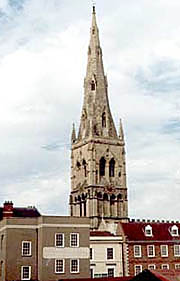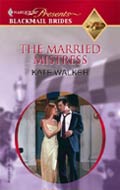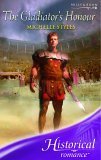So that’s why I do workshops - but today I’m looking at the other side of the coin – I believe in doing workshops but I also believe that those who attend workshops could – should – consider a few points before they turn up at any workshop I’m giving. If only to get the very best out of what I’m trying to teach.
So, let’s consider some of them.
If you’re going to attend any workshop I – or any other Harlequin Mills & Boon author is giving – please read some books beforehand. And make them books that were published in the last 12 months or so. From a selection of different authors. Don’t rely on the fact that you once read one book by Violet Winspear or Betty Neels published in the 1960s that you bought secondhand from a shop for five pence – and consider that that is representative of the whole genre from 1908 when the company was founded until the present day. Romances are a growing, changing, developing genre and the books being published now are not the same as they’ve always been – nor are the Tender Romances the same as the Moderns or the Desire the same as the Medicals.
Don’t ask the speaker (ie me!) ‘So have the books changed much in the past ten/fifteen/twenty years. The answer is YES - but if you want to find out how much they’ve changed then read for yourself. You could be pretty surprised. And you’ll learn a lot lot more that way than you would from my – or any other author’s answer of ‘Yes they’ve changed – and they continue to change.’
Don’t rely on sloppy, lazy journalists who will tell you that
- Everyone knows what a HMB romance is like –
That HMB Romances are all the same and have been the same since time began and will be the same until the end of time
That all HMB heroines are sweet innocent virgins who swoon upon the hero's manly chest, with her bosoms heaving, if a man so much as comes near them
That all HMB heroes are arrogant, monstrous Heathcliff-type brutes who do nothing other than treat the heroine appallingly until on the very last page he declares that he loves her – at which point she will swoon upon his manly chest – see 3 above
That all M&B romances are sickly sweet, with conflicts based only on silly misunderstandings that bear no relation to reality whatsoever.
That there is no sex whatsoever in any M&B romance and that all books must slide over these passionate moments with the dot, dot, dot, syndrome – eg ‘He picked her up in his arms of steel and carried her towards the bedroom door . . . ‘
If there is (shock, horror!) any sex in an M&B book it is only a recent development and may only take place after marriage, in the missionary position, in a bed . . . I repeat, read some books.
Above all else do not believe the urban myths that the lazy journo’s spread around – like the existence of the famous ‘formula’ – or, even worse, the guidebook that lists the exact places, parts of the body that may be touched and at what stage in the book – and that no other places on the hero or heroine’s anatomy may be even mentioned at any point.
If you’re in any doubt about these – READ the books! That way at least you will know what the speaker is talking about and it will make a lot more sense to you.
Don't ask the workshop leader if she can 'just' read your book and say what she thinks because it's time-consuming to do it properly and said author has deadlines of her own. Above all, don’t do as it is rumoured one over-enthusiastic would-be author did at an American conference and follow the (in this case editor) into the ladies loo and shove your manuscript under the cubicle door, begging her to ‘just’ take a look at it while she’s in there!
Don't whine about how come author XYZ gets to write about a subject but your book on the same subject was rejected – it’s more than likely that it’s not the subject you wrote about but the way you wrote that was the problem. It’s a fact of life that experienced authors can tackle topics that the ‘rules’ say must never be tackled and make them work.
Which reminds me – don’t believe in the ‘Rules’ – as my editor but two ago said ‘The only rule in romance writing is that you write as well as you possibly can in the way that tells the story in the best possible way so as to make the best book you can create.
If you're targeting category romance, it must be because that's what you want to write - if you try to write it from the head, there won't be any heart in your book and the main point about these books is emotion, emotion, emotion. So don’t turn up at the workshop expecting to learn how to make a very fast and very large buck out of a couple of books that you have dashed off in order to finance your way to something better.
Don’t ask the speaker what she earns from her writing so that you will know what you can expect to earn yourself as soon as you have dashed off that book you know will be so very easy to write. It’s impossible to predict just what any book will earn because it depends on the line it’s published it, whether the readers take to it, how many international countries it’s published in, how long you’ve been writing . . . . Whatever the speaker earns it will probably bear no relation (good or bad) to anything you, or any other author, even in the same line, may earn.
Above all else, don’t expect the speaker to give you that much famed ‘magic formula’ for writing a M&B/Harlequin Romance – no – hang on - I’ll give you that now, for free – here you are
THE FORMULA –
HEROINE +
HERO +
CONFLICT +
“GETTING TO KNOW YOU” +
LOWEST POINT (BLACK MOMENT) +
RESOLUTION +
SOME REALLY GREAT WRITING
__________________
= A ROMANCE NOVEL
Easy isn’t it? Not!
If it was then M&B would be accepting 4000 or more of the over 5000 submissions they receive each year instead of the less than 10 new authors a year that they do publish.
So if you do go to a workshop on writing romance, go prepared. Read the books, accept that there is no easy, magical answer – but if you have talent, love the genre, work hard, keep on submitting in the face of rejection, learn from the comments editors or other qualified readers make on your work, and keep trying – you might just make a go of it. I’m not going to trample on anyone’s dreams – people tried to do that to mine and I wouldn’t let them. But neither am I going to tell you it’s easy. No workshop can give you all the answers but you can learn a lot if you go in the right frame of mind, and you give writing this particular genre – the one that the late, great Charlotte Lamb described as ‘those complicated little books’ - the respect and the hard work they deserve.
Good luck!




























